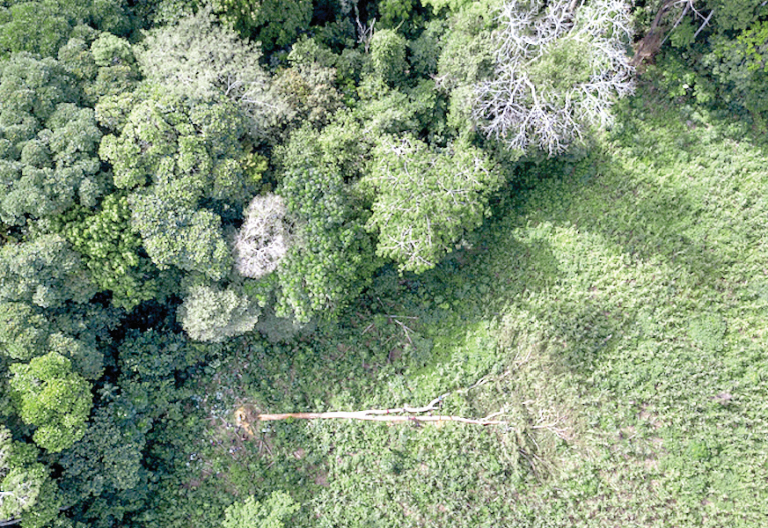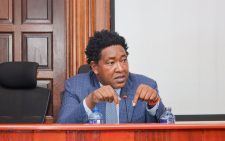Priority 2025 actions to curb forest destruction identified

Leading civil society and research organisations have endorsed a new call-to-action that provides urgently-needed guidance on how governments can revive stalled efforts to halt and reverse deforestation and forest degradation worldwide.
In a report titled 2030 Global Forest Vision: Priority Actions for Governments in 2025, the call-to-action outlines eight priority actions governments should advance this year, ahead of the United Nations Convention on Climate Change (COP30), including integrating forest goals into national climate plans.
The other priorities the organisations identify for advancement before the annual climate summit include promoting deforestation-free trade, scaling up forest finance, securing indigenous peoples’ land rights, and setting clear expectations for financial institutions to address forests risks.
Also listed by the organisations as urgently needed priority actions for governments are repurposing harmful subsidies, strengthening governance in the land-use sector and addressing debt challenges in multilateral development finance.
“As we approach COP30 in Belém, Brazil – a gateway to the Amazon – just five years remain to deliver on these promises, but progress has been insufficient,” say the call-to-action’s coordinating authors Franziska Haupt, Jillian Gladstone, Anna Rynearson, and Erin Marson (Climate Focus), Hermine Kleyman (WWF), and Mary Gagen (Swansea University).
Insurance policy
The leading civil society and research organisations appeal has been prompted by insufficient progress of world leaders’ bold, collective commitments to protect, conserve, and restore the world’s forests by 2030.
“Investing in forests is not merely an act of goodwill but an insurance policy for long-term economic stability, sustainable development, and resilient supply chains,” they state, calling on governments to immediately begin implementing these priority actions in the lead up to COP30.
Among the organisations that have made the call-to-action are Accountability Framework Initiative, Brazilian Coalition on Climate, Forests and Agriculture, Carbon Disclosure Project (CDP), a non-profit that helps companies, cities, states, regions and public authorities disclose their environmental impact, the Clean Cooking Alliance, Climate and Company, and Climate Focus. Others are, the Centre for International Forestry Research and World Agroforestry (CIFOR-ICRAF), Global Forest Watch, Institute for Global Environmental Strategies (IGES), Natural Resources Defence Council (NRDC), Rainforest Foundation Norway, Restor (the global hub for nature restoration and conservation), Rights + Resources, Stockholm Environmental Institute (SEI), Swansea University Prifysgol Abertawe, the Sustainability Consortium and the Zoological Society of London.
The first action the organisations call for is to rally round forest goals with renewed ambition, integrating them in national climate and biodiversity plans and in upcoming conference outcomes. Why? The authors of the call-to-action say it is because this year, COP30 will provide a platform for governments to showcase their leadership on forests and the steps they are taking to establish sustainable land-use.
“The G20 Summit in November also presents an opportunity for countries to highlight the critical role of forests for climate, biodiversity and food security (and beyond), and for countries to demonstrate how they are implementing the high-level principles on the bio-economy agreed in 2024,” they state.
National action plans under the UN Framework Convention on Climate Change (UNFCC) and the UN Convention on Biodiversity (CBD) are powerful tools to signal leadership and countries’ willingness to change their own governance arrangements in line with international goals.
“In 2025, as many countries still finalise their third nationally determined contributions (NDCs), and national adaptation plans (NAPs), under the UNFCC/Paris Agreement, and their national biodiversity strategies and action plans (NBSAPs) under the CBD, there is an opportunity to strengthen national ambition and implementation,” they add.
The civil society and research organisations have urged governments to affirm a commitment to phase-out deforestation, forest degradation, and ecosystem conversion in the formal outcomes at the UNFCCC in Brazil, building on the Global Stocktake decision, the Glasgow Leaders Declaration on Forests and Land Use, and other previous pledges.
The 2030 Global Forest Vision aims to provide clarity and focus to unite the forest community-state around priority actions needed each year leading up to 2030. Through consultations and review by dozens of experts to develop priority actions, it catalyses targeted, inclusive action and enhances accountability for delivering on forest goals.
In the second call-to-action, the organisations have urged partnerships to promote degradation-free trade. They note that international partnerships can be important mechanisms for promoting legal deforestation, conversion-free trade and decoupling commodity production from deforestation, forest degradation, and ecosystem conversion – actions that support sustainable and vibrant rural economies.
The third action is to significantly scale up finance for forests. Achieving forest goals requires substantial investment in protecting, conserving, sustainably managing and restoring forests. To achieve these goals, donor countries should make financial support sufficient to incentivise forest countries to stop and reverse forest and ecosystem loss.
Mitigating risks
Fourth, is to secure the land rights and support the self-determination of Indigenous and Afro-descendant peoples and local communities, including through scaling up finance. The lands and territories of these peoples play a crucial role in climate mitigation and adaptation. Lands where community rights are recognised tend to have more forest cover, richer biodiversity, and higher rates of carbon storage than other lands.
Call-to-action five seeks the issuance of comprehensive supervisory expectations for financial institutions to address forest risks.
Deforestation, forest degradation and other ecosystem conversion pose significant financial risks- such as asset devaluation, supply chain disruptions and regulatory penalties – that can impact businesses and economies.
Regulating these risks is crucial to ensuring economic stability, mitigating environmental degradation and safeguarding long-term financial resilience. Governments and financial supervisors’ mandates should therefore ensure that forest-related risks are sufficiently assessed, managed and mitigated by financial institutions.
Sixth, the experts call for the identification and repurposing subsidies that harm forests and ecosystems, directing them toward a sustainable food systems transformation, a bio-economy transition, and sustainable forest management.
Governments spend roughly US$470 billion on agricultural subsidies that harm forest and other natural ecosystems, and contribute to biodiversity loss. These subsidies – including fiscal incentives, direct or indirect transfers, and foregone revenue – can result in agricultural and other land expansion into forests, overuse of fertilisers and other harmful substances, and often leave small-scale farmers and local communities behind.
The seventh action seeks the strengthening of governance in the land-use sector, including legal frameworks, law enforcement, transparency, and accountability. These are essential for the sustainable management of forests and natural resources, but has declined in many parts of the world.
The civil society and research organisations want the eight and urgent priority to address the vicious cycle of poverty and increase the flexibility in multilateral development finance.
Global South countries, they explain, possess immense natural capital – including forests, other natural ecosystems, and biodiversity, which delivers ecological and climate regulation services of planetary importance.
“The environmental services provided by forests and other key ecosystems in these countries are assets and should be valued as such in their approaches to debt management. At the same time, many of these countries are forced to spend substantial portions of their budgets repaying sovereign debt, limiting the remaining investments that can be made in people and the planet,” the authors note.
Without debt restructuring that accounts for the value of all countries’ natural capital, the global community risks falling short on biodiversity targets and forest protection goals.















